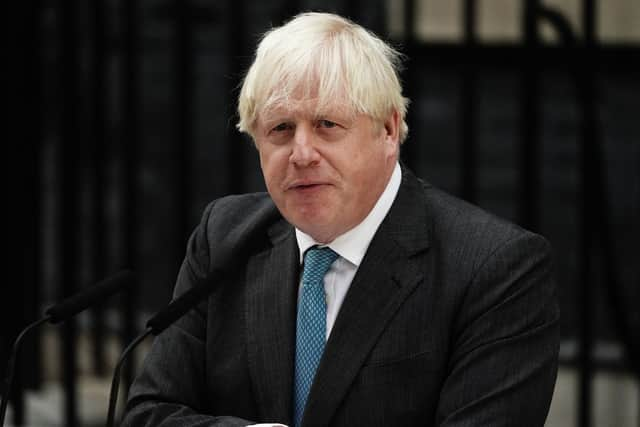The Levelling Up & Regeneration Bill does not go far enough for Yorkshire - Jack Shaw
Fortunately, the government has shown no sign of dropping its Levelling Up White Paper, which sets out a dozen ‘missions’ it wants to achieve by 2030. These include boosting civic pride in communities which have suffered decades of neglect, increasing investment and productivity outside of London and the South East and tackling ill health.
These missions are welcome and the government has made progress in some areas, yet there is a mismatch between rhetoric and reality, between the stated scale of ambition and the action that is being taken. Take the legislation that the government has introduced in Parliament – the Levelling Up & Regeneration Bill – which does little to fundamentally address the challenges facing Yorkshire.
Advertisement
Hide AdAdvertisement
Hide AdFor a start, the legislation – which is still being debated - will reform the planning system and give councils new powers, but these reforms are modest. Councils will be able to purchase land to speed up regeneration, for example, and they’ll be able to charge second homeowners a council tax premium after one year, rather than the current two years – bringing the UK in line with existing practice in Wales and Scotland and generating more revenue for councils to invest in local services. Taxing second homeowners will be welcome news to tourist hotspots where demand for housing has outstripped supply. Only last year Whitby residents voted to limit the sale of second homes, while North Yorkshire Council was the first authority in England to commit to increasing the tax on second homes, which is expected to generate an additional £14m for the region each year.


The government has also committed to reporting on the progress it makes in tackling regional inequalities, even if this is a weak commitment given the government will be able to change the missions it reports against. Even then, the government is unlikely to report on progress until next year at the earliest, over four years since the promise of levelling up at the 2019 election.
Although these changes are a step in the right direction, alone they are not at the scale required to tackle the persistent and longstanding inequalities facing people in Yorkshire, from the cost-of-living crisis and unaffordable housing to poor health and transport connectivity.
And there are new forthcoming powers that are neither priorities nor address the challenges facing working people, such as granting the mayors of West Yorkshire and South Yorkshire, Tracy Brabin and Oliver Coppard, the power to change their titles.
Advertisement
Hide AdAdvertisement
Hide AdBut the Levelling Up Bill is remarkable not for what it includes, but for what it ignores.
Focus groups we at IPPR conducted in York and Scarborough told us that too often people feel locked out of opportunities – a concern which is all too familiar and which the legislation does little to address. Beyond a pilot called ‘street votes’, which is expected to give communities the power to vote on development in their area, there are few options available to communities to shape the nature of that development.
The evidence is clear. Handing powers to local communities improves outcomes: local leaders know their places better than Whitehall and they’re more trusted to deliver.
But there is a lack of funding available to local leaders, with authorities competing for small, short-term funding streams. Barnsley has been a vocal critic of the current system, which does not adequately take account of deprivation.
Advertisement
Hide AdAdvertisement
Hide AdFiscal devolution, and more tax-raising powers, would benefit the whole of Yorkshire. Mayors Coppard and Brabin have put investment in public transport and culture at the centre of their plans in South and West Yorkshire respectively, but to capitalise on Yorkshire’s international status as a heritage and culture powerhouse, the government needs to let go and enable more of the money spent in Yorkshire to remain in Yorkshire.Beyond South and West Yorkshire, the government has struck a new devolution deal with York and North Yorkshire - which will provide £540m over the next three decades. But the government’s approach to devolution has been criticised for being too ‘contractual’: it sets the terms of the debate and there are too many strings attached. Instead, a shift in mindset and power is required. It also doesn’t replace the cuts imposed on councils over the last decade either. Meanwhile, East Yorkshire has no deal at all. There are reasons to be positive about the Levelling Up & Regeneration Bill, but it does not go far enough. While it continues to be debated in Parliament, there is still time for Yorkshire’s parliamentarians to take more substantive action to address the challenges envisioned in the White Paper.
Jack Shaw is a senior research fellow at IPPR. He tweets @JackTShaw.